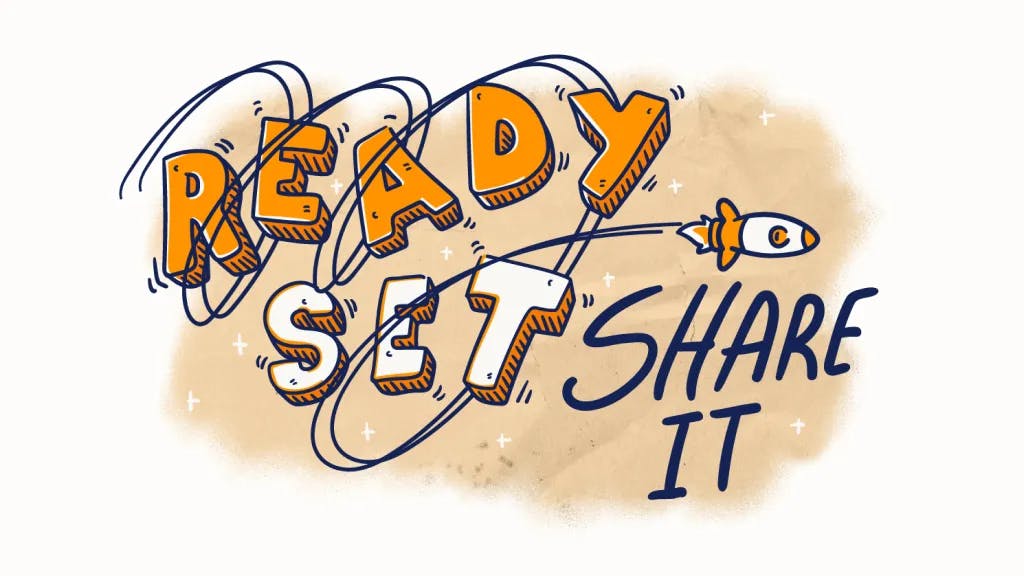How can you know if you have a good idea before submitting it?
Ideas are at the core of innovation. Without them, innovation cannot exist. However, submitting an idea and hoping for the best is not enough.
As an innovator, your goal should be to come up with ideas and shape them to become the best possible. Doing so will give your idea the best chance of making it all the way to the finish line.
Still, submitting ideas can be a stressful process. You may ask yourself: "Is my idea any good?"
"Should I do some more work on it before submitting it?
"How can it be improved?"
You're not alone. There are always ways to improve your ideas, and the journey can actually be a lot of fun!
To help you along your idea-generating journey, we've developed some tools you can use to improve your ideas before submitting them.
You've got some ideas, but how to improve them?
An excellent first step when improving an idea is ensuring it aligns with the existing innovation goals or objectives. These goals may be ones you've come up with, or perhaps they are passed onto you by your colleagues or leadership.
Are you seeking to address a specific problem that's come to your attention repeatedly through customer reviews or employee surveys? Is there an area in your organization or company that needs to be improved?
If so, does your idea directly address those concerns?
Let's say that the goal is to discover emerging opportunities or develop a new product or new way of doing things. You'll need to ensure that your idea aligns with those goals.
Here are some helpful questions you can ask yourself to help better shape your idea:
What are you trying to accomplish with this idea?
What problem is this idea trying to solve?
What opportunity does this idea seek to create?
What are its limitations?
Is there anything you're unsure about? If so, what is it?
Once you're confident that your idea fits your innovation goals, you can move on to the next stage - seeking feedback.
Getting feedback on your idea is the first step to improving it. However, for others to be able to help, you first need to communicate that idea effectively. Clear communication is critical to increasing your likelihood of getting meaningful feedback and giving your ideas a chance.
When communicating your idea to a colleague or team member, adapt your communication style to their knowledge base and context. Be sure to share your idea as simply as possible in a way that everyone can understand.
Finally, write your idea down and consider asking someone to read it before explaining it to them. That way, you can validate whether they have grasped it before you submit it to a larger pool of individuals. Iteration is everything!
Once you're satisfied with your idea and feel it has improved significantly, you are ready to submit it!
Are there any tools I can use for effective idea management?
Yes! There are a lot of helpful tools that can assist you in the idea management process, from the scouting and research stage to taking those ideas to the finish line.
InnovationCast is a premier innovation management software that helps you engage people to co-create ideas and bring them to life. The idea management tools the software offers will allow you to get stronger ideas faster through tools like challenges with feedback-based voting, communities that enable you to onboard and collaborate with whomever you want, customizable idea assessment tasks features, and much more.
Are you interested in learning more? Click here to get to know more about InnovationCast. Ready to chat with us? Request a demo today.
Are you out of ideas? Here are some suggestions that could inspire you.
Coming up with new ideas can be a deeply personal process. It may seem counterintuitive, but that's actually a great place to start.
A good way to find inspiration for new ideas is to connect with your personal experience. Is there anything you are frustrated with or would like to see improved?
Great ideas are often born from an ambition to improve something one cares deeply about. They also come from a need we may recognize in our workplace or the world around us.
Is there anything causing tension that could be addressed with an innovative solution? Start there, and you'll find that you may devise some pathways to spearhead change.
A second way to find inspiration for ideas is to listen. Take time to observe what is happening around you. What are your colleagues saying? Is there a common narrative that you are repeatedly hearing from your customers? What about the leadership in your organization? What are some of their concerns, dreams, aspirations, and goals?
Staying in tune with what is happenings around you through active listening will give you ample opportunity to innovate. If you are attentive to the needs, frictions, and dreams of others around you, you can uncover insights that will trigger new ideas.
Finally, look beyond your current horizon and direct sphere of influence. Is there anything in other sectors, industries, or professional occupations from which you can draw inspiration?
Maybe it's time to attend that webinar, conference, or workshop about that topic you've always wanted to learn about but that is entirely outside your current scanning range.
Don't be afraid to branch out and explore new possibilities. Doing so will create a breeding ground for incredible ideas. Then, it's just a matter of applying that inspiration to your reality.


